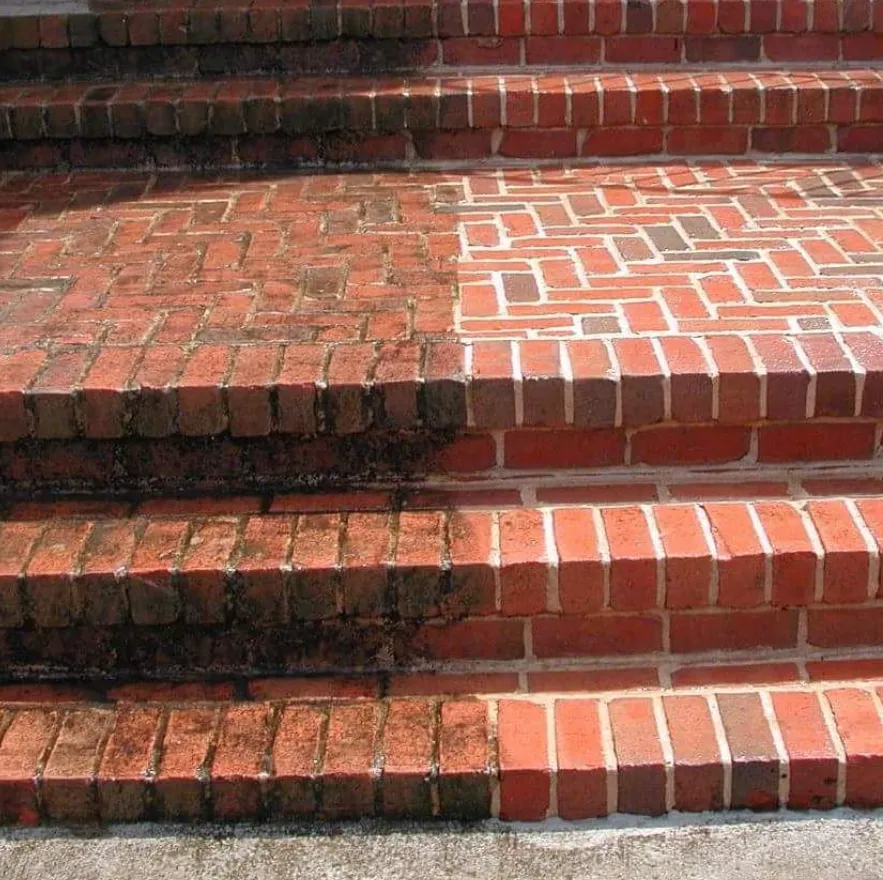Keeping your property clean and maintained is critical to its appearance, value and longevity. Among all the cleaning tasks, regular pressure cleaning stands out as the most crucial way to get a thorough and quick clean. Pressure washers are powerful tools that can handle a wide range of cleaning jobs, from removing light dirt on paths to removing stubborn dirt on outdoor furniture and driveways. In this guide, we will look at the benefits of regular pressure washing, types of pressure washers and best practices for use. We will also go into the technical bits of pressure washers like water-cooled motors, powerful aluminium pumps and nozzle attachments so you can make informed decisions.
What is a Pressure Washer?
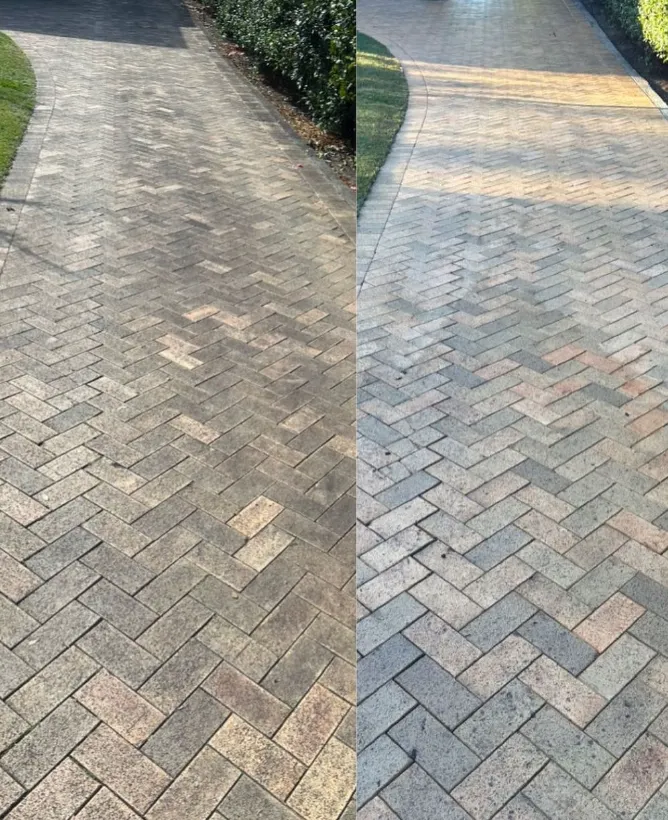
A pressure washer (also known as a pressure cleaner) is a versatile tool that uses high-pressure water to remove dirt, grime, mould and other contaminants from surfaces. These machines have an aluminium pump that pressurizes water and expels it through a spray gun. The powerful cleaning action of pressure washers makes them suitable for a wide range of cleaning jobs, from light dirt removal on garden furniture to heavy-duty cleaning like removing graffiti or cleaning driveways.
Pressure washers come in different models, from compact for light jobs to full size for heavy-duty jobs. Whether you have moderate dirt on paths, stubborn dirt on outdoor furniture or ingrained dirt on brick walls, knowing what a pressure washer is and how it works is key to choosing the right one for you.
Power Washer Benefits
Using a power washer regularly has many benefits beyond just cleaning. Here are some of the advantages:
- Unbeatable Cleaning Power: Power washers have more cleaning power than you can imagine. Whether you have light dirt, moderate dirt or stubborn dirt, a power washer can do the job. The combination of high pressure and water flow makes power washers great at removing dirt that’s been embedded in surfaces like driveways, garden walls and outdoor furniture.
- Time and Effort Savers: Traditional cleaning methods like using a garden hose and scrub brush can be time consuming and laborious. Power washers are an efficient cleaning process that saves you time and effort for all cleaning jobs. You can clean decks, driveways and house siding in a fraction of the time it would take with manual methods.
- Increased Property Value: Regular power washing increases the curb appeal of your property by keeping it clean and maintained. A clean exterior can make a big difference to the appearance of your home and potentially increase its value. Whether you’re selling your home or want to keep it looking good, power washing is a valuable tool to get that polished look.
- Preventative Maintenance: Dirt, mold and mildew can cause long term damage to surfaces if left unchecked. Regular power washing prevents this damage by removing contaminants before they can do harm. This not only extends the life of your exterior surfaces but also reduces the need for costly repairs down the line.
- Environmentally Friendly Cleaning: Power washers are an eco friendly cleaning solution as they use the power of high pressure water rather than harsh chemicals to remove dirt and grime. This makes power washing a safer option for the environment and the surfaces being cleaned.
Power of a Power Washer
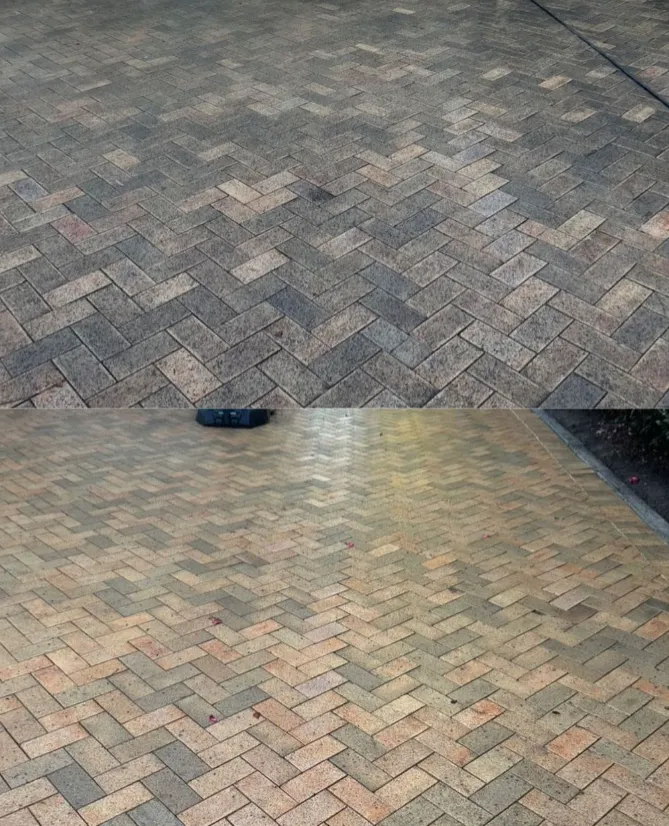
The cleaning power of a power washer is determined by two main factors: pressure (measured in PSI, or pounds per square inch) and flow rate (measured in GPM, or gallons per minute). Together, these two factors decide how well a power washer can clean different surfaces.
- PSI (Pounds per Square Inch): The PSI rating is the force of the water spray. Higher PSI is for removing embedded dirt and heavy duty cleaning, lower PSI is for gentle cleaning of delicate surfaces like glass or painted areas.
- GPM (Gallons per Minute): GPM is the volume of water used by the power washer. Higher GPM is for faster rinsing and more efficient cleaning, ideal for big cleaning jobs like driveway cleaning or industrial cleaning.
Water-Cooled Motors Benefits
Kärcher’s modern pressure washers often come with water-cooled motors that have several advantages over air-cooled ones:
- Longer Life: Water-cooled motors run cooler, so the engine and pressure washer lasts longer. Perfect for residential and commercial use.
- More Efficient: Water-cooled motors perform consistently even after hours of use, great for industrial cleaning or heavy-duty commercial cleaning. The cooling process keeps the engine at the optimal temperature so it won’t overheat.
- Quieter: One of the biggest benefits of water-cooled motors is they are quieter than air-cooled ones. Perfect for residential areas where noise is a concern, so you can clean without disturbing your neighbors.
- Less Maintenance: By keeping the engine cooler, water-cooled motors need less maintenance, so lower operating costs and fewer repairs in the long run. Good for homeowners and businesses alike.
Aluminium Pumps
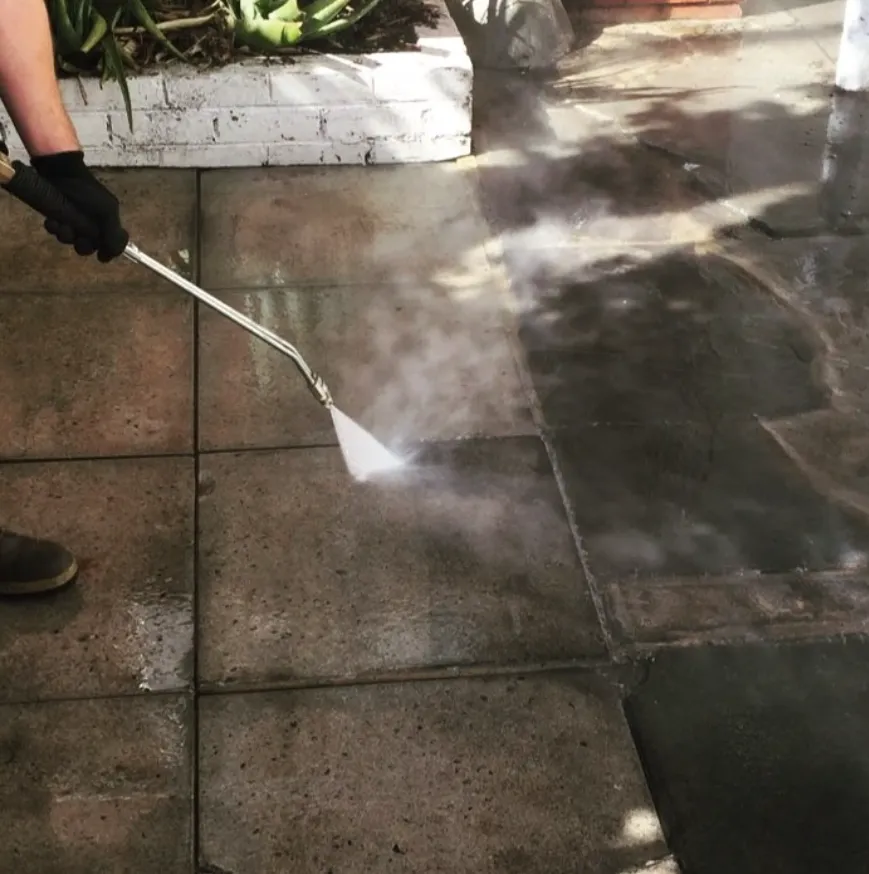
The pump is the heart of any pressure washer, and using an aluminium pump has several benefits:
- Lightweight and Rugged: Aluminium pumps are both lightweight and rugged, easy to carry and long lasting. Perfect for compact design pressure washers that need to be portable and efficient without sacrificing performance.
- Heat Dissipation: Aluminium is excellent for heat dissipation so that the pump won’t overheat during extended use. This contributes to the overall reliability and efficiency of the pressure washer, so you get consistent cleaning power for any cleaning task.
- Corrosion Resistant: Aluminium pumps are corrosion resistant, so suitable for use in any environment, even with water restrictions or alternative water sources. Corrosion resistant means the pump will remain in good working condition even after being exposed to water and cleaning agents for a long time.
How Do Pressure Washers Work?
Pressure washers suck water from a clean water source (garden hose) and pressurize it through a pump. The pressurized water is then expelled through a spray gun fitted with different nozzle attachments to change the spray pattern and pressure. Here’s the step-by-step process:
- Water Intake: The pressure washer draws water from a connected garden hose or an alternative water source. Some models have a detergent suction hose to mix cleaning agents with the water for extra cleaning power.
- Pressurization: The pump (usually an aluminium pump) pressurizes the water to the desired PSI. The pump is designed to be robust so the water is pressurized efficiently and gives you the cleaning power to tackle any cleaning job.
- Spraying: The pressurized water is expelled through a spray gun which can be adjusted with different spray lances or nozzle attachments. These attachments allow you to change the spray pattern and pressure for the job you’re doing, whether it’s light dirt on garden furniture or heavy dirt on paths.
- Cleaning: The high pressure water removes dirt, grime and contaminants from the surface, high pressure cleaning is fast and powerful. The combination of high pressure and water flow means even the toughest cleaning jobs are done quickly and thoroughly.
Types of Pressure Washers
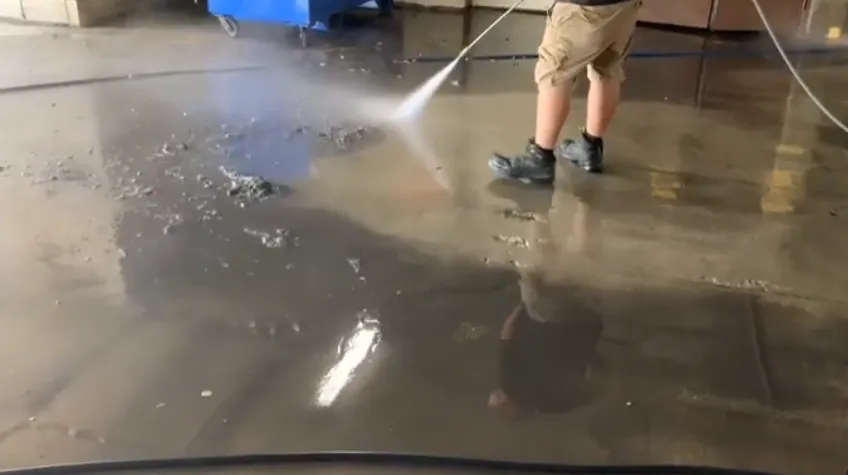
Pressure washers come in many forms, each designed for specific cleaning needs. Knowing the differences between these types will help you choose the right one for your cleaning tasks:
- Electric Pressure Washers: Electric pressure washers are perfect for residential use, quiet and efficient for light to moderate dirt removal. Easy to maintain, environmentally friendly and great for everyday cleaning like washing cars or cleaning outdoor furniture. Electric pressure washers are also compact in design and easy to store and maneuver.
- Gas-Powered Pressure Washers: Gas-powered models have more power and are better for heavy-duty cleaning. Portable and can be used where there is no electricity, perfect for big cleaning jobs like driveway cleaning or industrial cleaning. Gas-powered models also have high-performance engines like Baumr-AG’s Overhead Valve engine design for maximum cleaning power.
- Compact vs Full-Size: Compact pressure washers are light and easy to store, perfect for small cleaning tasks and tight spaces. Although smaller in size, compact models still have powerful cleaning ability. Full-size models have more power and has features like hose reel, detergent suction hose and integrated hose storage for bigger cleaning projects.
- Specialty Pressure Washers: Some pressure washers are designed for specific tasks like heated pressure washers or hot water pressure washers for grease and oil removal. Other specialty models like those with Boost mode or Smart Control have advanced features for better cleaning performance. Models like Jet-USA corded electric high-pressure washers are known for their innovative design and hose storage solutions.
- Commercial Grade Surface Cleaners: For industrial cleaning or big commercial projects, commercial grade surface cleaners are the way to go. These high-power models are designed to tackle the toughest cleaning challenges, has exceptional cleaning performance and durability. Features like Axial cam pump, brass pump head and 3-in-1 multi jet spray lance makes these models perfect for professional use.
High Pressure Washer on Sensitive Surfaces
Using a high-pressure washer on sensitive surfaces needs to be done with care. Here are some tips for cleaning safely:
- Adjust the Pressure: When cleaning delicate surfaces like glass or painted walls, use low pressure to avoid cracking, chipping or peeling. Pressure washers with adjustable pressure like those with Premium Power Control or a consultant via app allow you to fine tune the pressure for gentle care.
- Use Right Nozzle Attachments: Nozzle attachments like the Dirt Hammer Nozzles or 3-in-1 Multi Jet can be adjusted to give a wider spray pattern to reduce impact on sensitive surfaces. And using a spray gun with trigger gun feature allows you to control the water flow more precisely.
- Choose the Right Cleaning Agent: For surfaces like outdoor furniture or garden walls, use a cleaning agent specifically designed for delicate materials. This way the cleaning process will be effective without causing damage.
- Test on a Small Area: Before pressure washing an entire surface, test the pressure and spray pattern on a small, inconspicuous area to make sure it won’t cause damage. This is especially important for surfaces like house siding or brick walls.
- Follow Manufacturer Guidelines: Always follow the manufacturer’s instructions for using pressure washers on sensitive surfaces. Models like Kärcher pressure washers or Jet-USA’s range of pressure washers come with specific guidelines and washers with application consultant features to help you get the best results.
What Can I Use a Pressure Washer For?
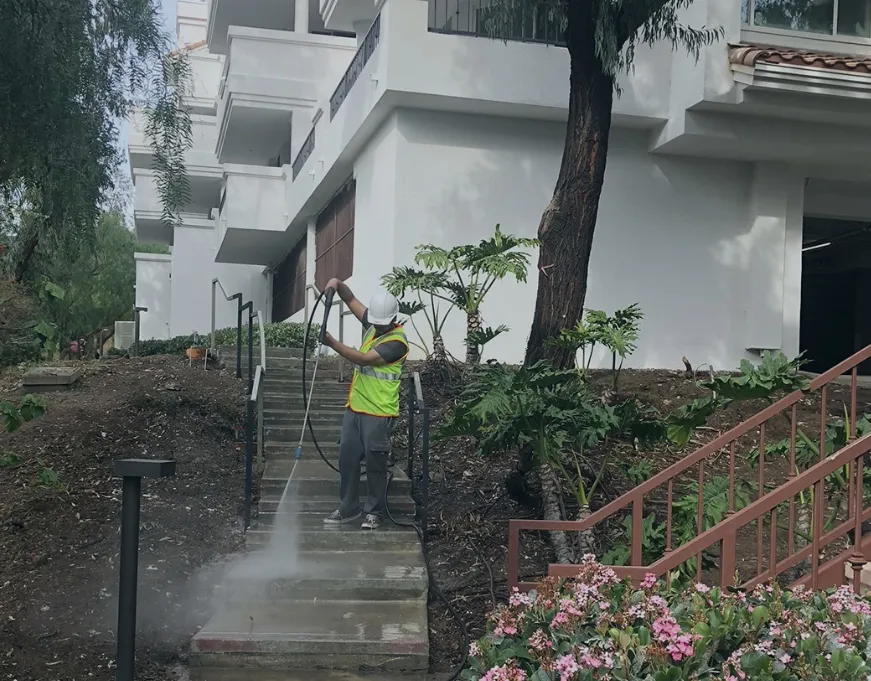
Pressure washers are super versatile and can be used for many cleaning tasks:
- Outdoor Cleaning: Pressure washers are perfect for cleaning decks, patios, driveways and garden furniture. The high pressure water easily removes dirt, grime and mold to restore the surface to its original state.
- Vehicle Cleaning: Use a pressure washer with a wide spray gun nozzle to clean cars, trucks and bicycles. The gentle cleaning process won’t damage the vehicle’s paint and components.
- Graffiti Removal: For graffiti on brick walls or concrete surfaces, use a high pressure cleaner with a robust pump and high performance motor. This gives you the extra power to remove paint and stains effectively.
- Gutter Cleaning: Pressure washers with nozzle attachments or telescopic handles can be used to clean gutters, removing leaves, dirt and debris to prevent blockages.
- House Exterior: Regular pressure washing of your house exterior, including siding, windows and brick walls, maintains its appearance and prevents long term damage from dirt and mildew. Use a cleaning kit or application consultant app to select the correct settings for each surface.
Why Clean Regularly
Cleaning regularly is essential for your property’s appearance and integrity. Here’s why:
- Prevents Damage: Regular pressure washing stops dirt, mold and mildew from building up and causing long term damage to surfaces. By removing these contaminants you can extend the life of your exterior materials and avoid costly repairs.
- Looks Better: A clean property looks better and reflects well on the owner. Whether it’s a commercial property or your home, regular pressure washing keeps it looking its best.
- Health and Safety: Mold, mildew and algae can be a health risk and create slippery surfaces. Regular cleaning removes these hazards so your property is safer for residents and visitors.
- Increases Property Value: A well-maintained property with a clean exterior is more attractive to potential buyers. Regular pressure washing can increase your property’s curb appeal and potentially increase its value.
- Protects Your Investment: Regular maintenance, including pressure washing, is an investment in your property’s longevity. By keeping your property clean and maintained, you’re protecting it from the elements and preserving its value over time.
When to Use a Pressure Washer
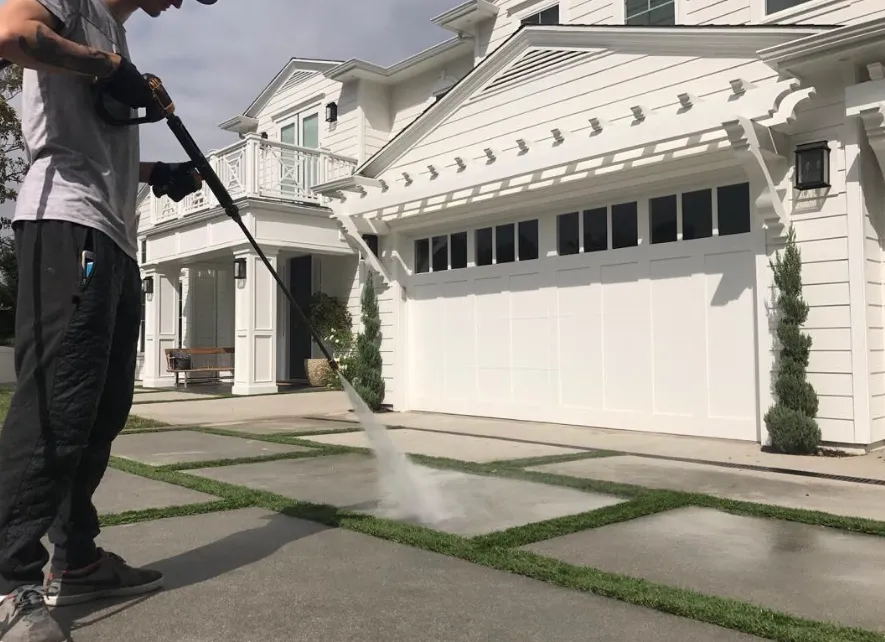
Knowing when to use a pressure washer will help you maintain your property:
- Seasonal Cleaning: Pressure washing in the spring and fall removes dirt and grime that’s built up over the seasons. This is especially important after winter when salt and debris can damage surfaces.
- Before Painting or Staining: Pressure washing is essential before painting or staining surfaces like decks or siding. This ensures the surface is clean and smooth so the paint or stain adheres appropriately.
- After Major Storms: Pressure washing after a storm helps restore your property by removing dirt, debris and other contaminants that may have accumulated during the event.
- Before Selling Your Home: A clean exterior can make a big difference to your home’s curb appeal and make it more attractive to potential buyers. Pressure washing is a cost effective way to enhance your property before you put it on the market.
- Routine Maintenance: Regular pressure washing as part of your maintenance schedule keeps your property in top condition all year round. This proactive approach prevents damage and ensures your property is clean and maintained.
With so many pressure washers out there and their cleaning power and how to use them, you can get great cleaning results for all cleaning jobs. Whether it’s everyday dirt, tough dirt or heavy duty cleaning the right pressure washer and accessories will make all the difference to your property.
FAQ
What can I clean with a pressure washer?
Concrete, wood, brick, siding, decks, patios, vehicles. Use the right pressure and nozzle to not damage sensitive surfaces.
How often should I pressure wash my house?
Once a year. However, high-traffic areas or areas with harsh weather may need more.
Can I pressure wash windows?
Yes, but be careful. Use low pressure and right nozzle attachments to not crack or break the glass.
What’s the difference between electric and gas pressure washers?
Electric pressure washers are quieter, lighter and for smaller jobs. Gas powered are more powerful and for big, heavy duty jobs.
Can I pressure wash my car?
Yes, pressure washing your car is safe if done right. Use wide spray gun nozzle and low pressure to not damage the paint or sensitive parts.
